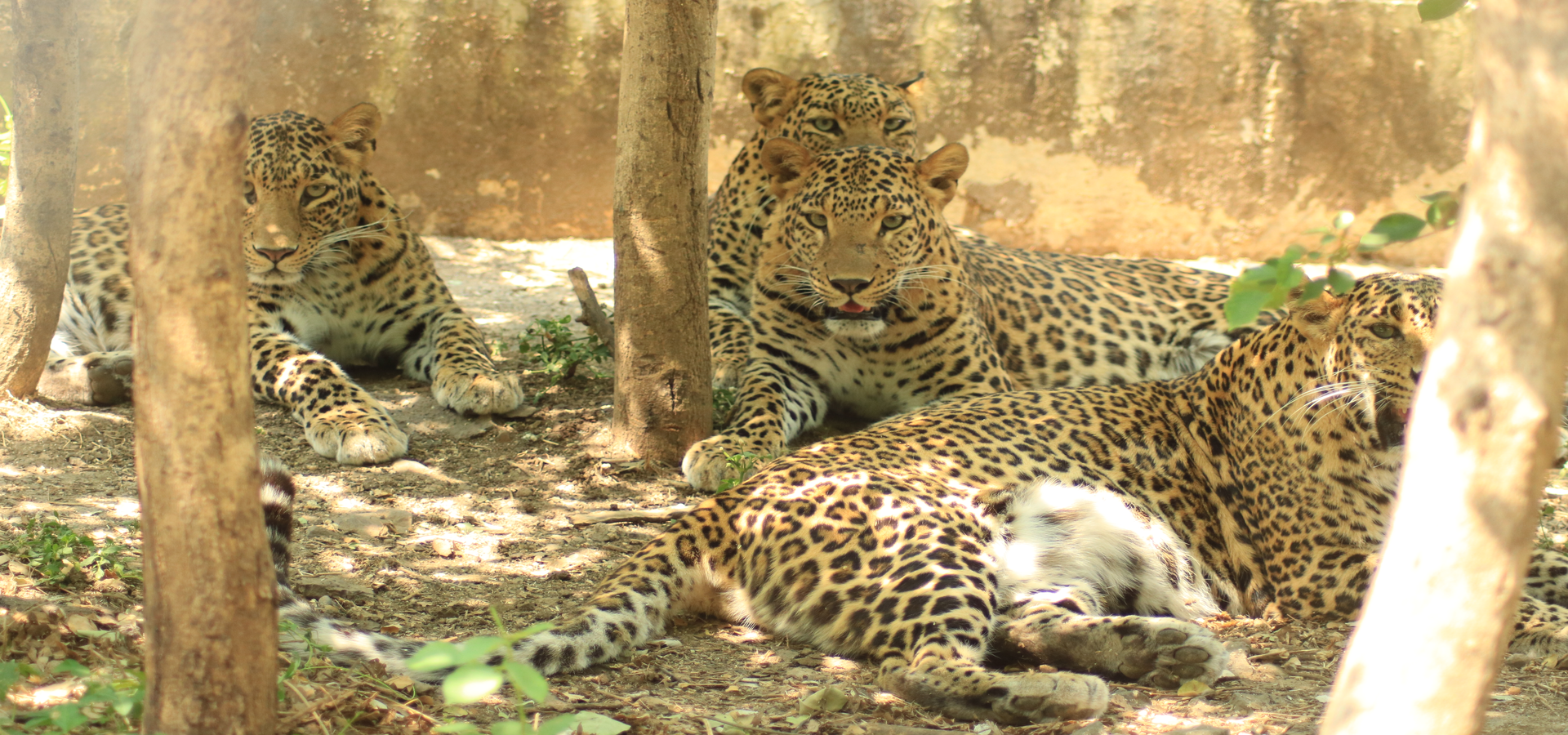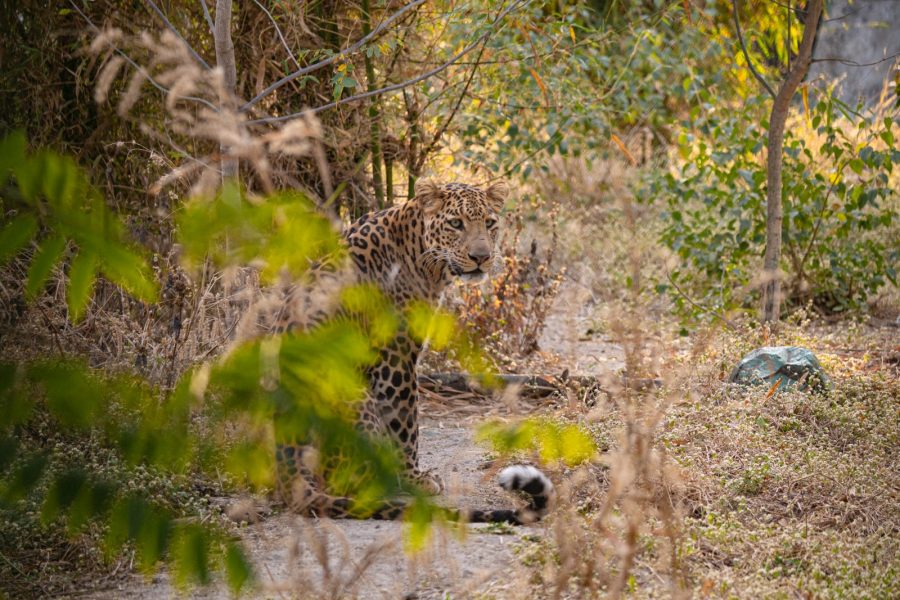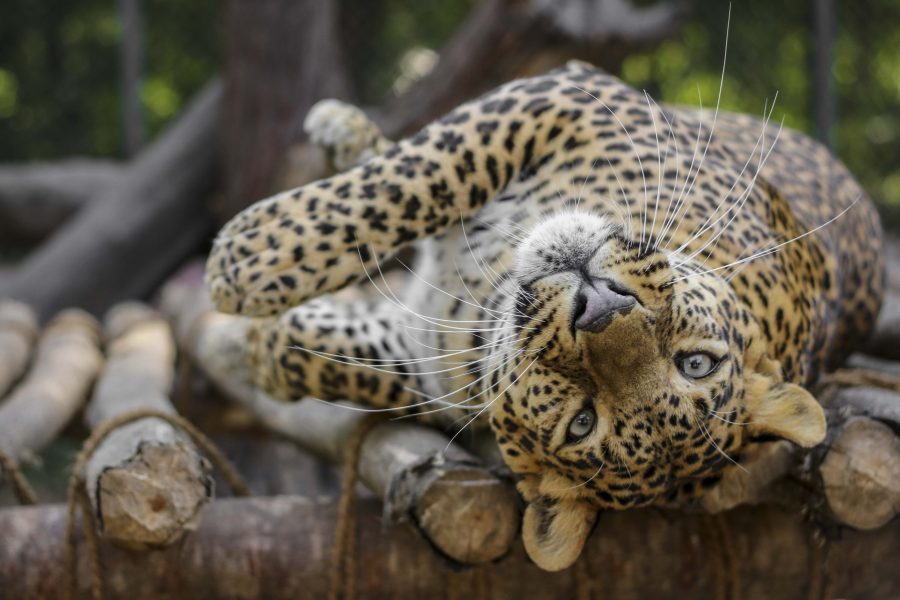The cat’s out of the bag and quite literally so, especially with the recent positive cases of the Coronavirus infection of the 5 tigers and 3 African lions at the Bronx Zoo in New York. This alarming incident has put conservationists and zoo keepers all around the world under considerable amount of stress as the zoo keeper who was tested positive for Coronavirus did not show any signs of the infection and was asymptomatic. The veterinarians suspected unusual behaviour in the tiger as she was constantly wheezing, showed reduced appetite and would be spotted being predominantly inactive. Once tested positive for COVID-19, the zoo authorities were on high alert and immediately put all 8 big cats under their care in separate, isolated enclosures with broad-spectrum of antibiotics being administered to them. According to the Bronx Zoo, all 5 tigers and 3 lions are healing and their condition has improved remarkably, all other animals at the zoo are constantly being observed for unusual behaviour.
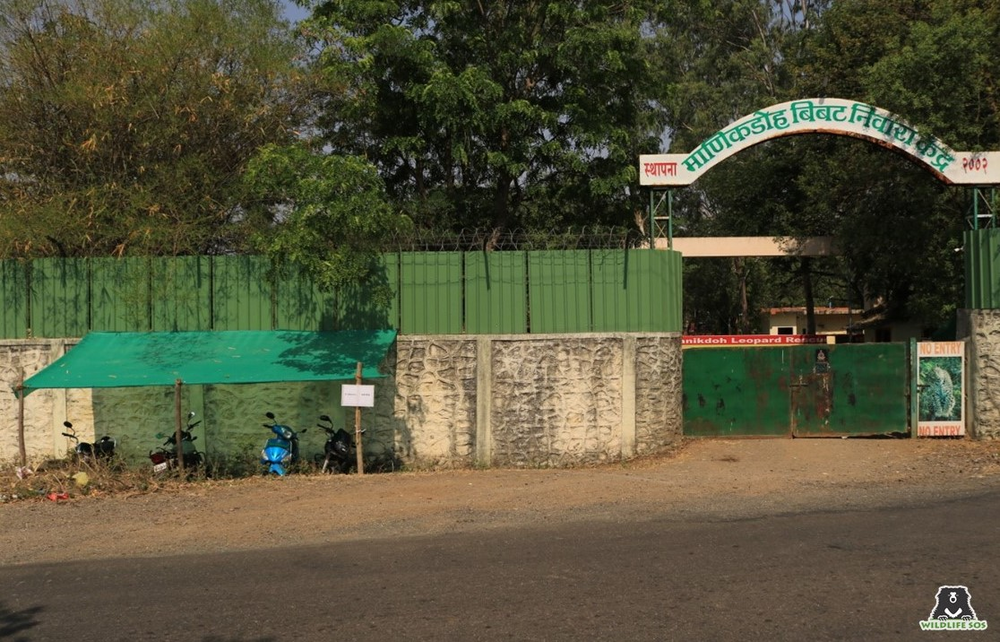
Thousands of miles away and separated by the vast stretches of oceans, the Wildlife SOS Manikdoh Leopard Rescue Centre, in Junnar, Maharashtra houses over 30 leopards who were rescued from grave situations of conflict or were too young to survive in the wild on their own. Maharashtra also happens to report the highest number of cases of Coronavirus infection in the country, contributing to over 30% confirmed cases and a rising number of deaths.
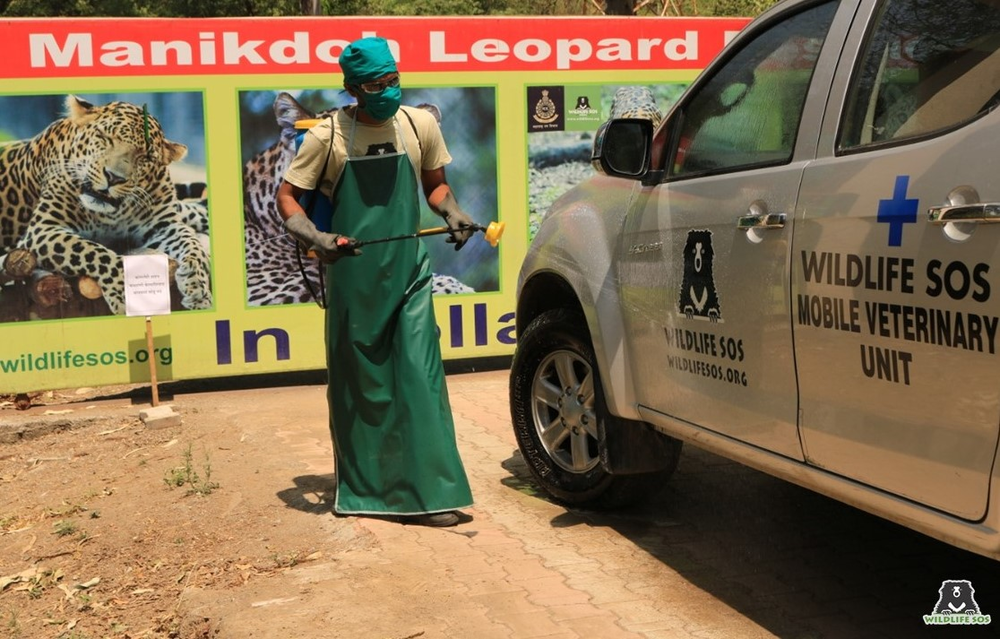
The recent developments have also led to our veterinarians taking extra precaution with the leopards under our care. With social distancing becoming the new norm, it is equally important to observe the same with animals. Zoos and wildlife sanctuaries in India are adopting preventive measures to ensure the safety of the animals under their care. The Central Zoo Authority of India and the Indian Veterinary Research Institute (IVRI) have alerted all zoos, national parks, sanctuaries and wildlife reserves to adopt requisite measures to safeguard animals.
Although no positive cases of leopards have surfaced in the world and to keep it that way, it is of utmost importance that proper standards of hygiene are maintained for the safety of the leopards.
As a first, complete santisation of our rescue vehicles at the Centre was done along with sanitisation of the surrounding areas.
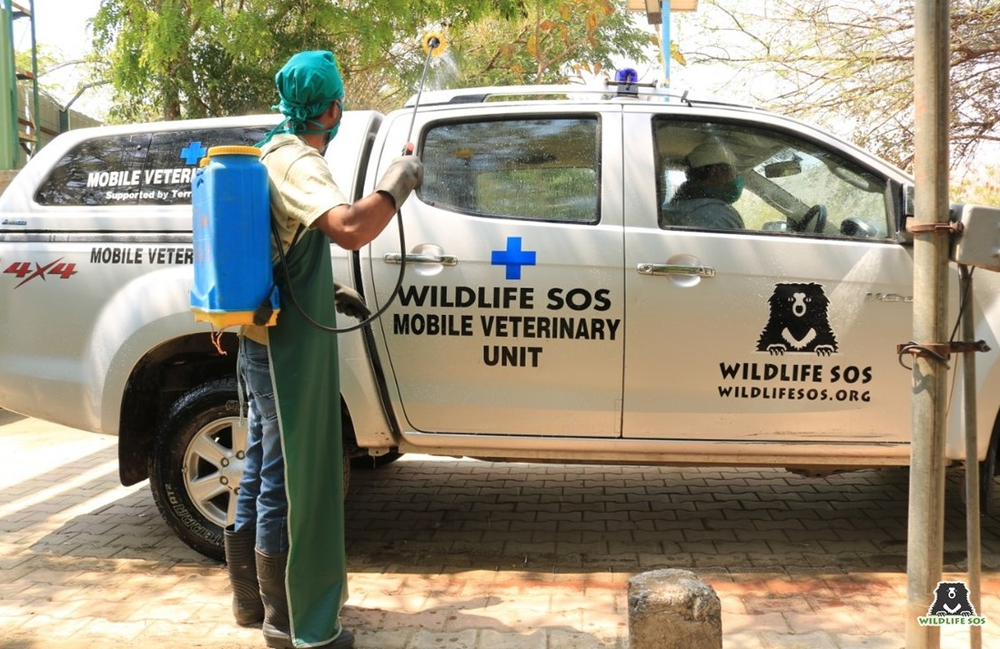
Reinstated use of medicated footbaths for the leopard keepers and veterinarians every time that they enter or leave the enclosures.
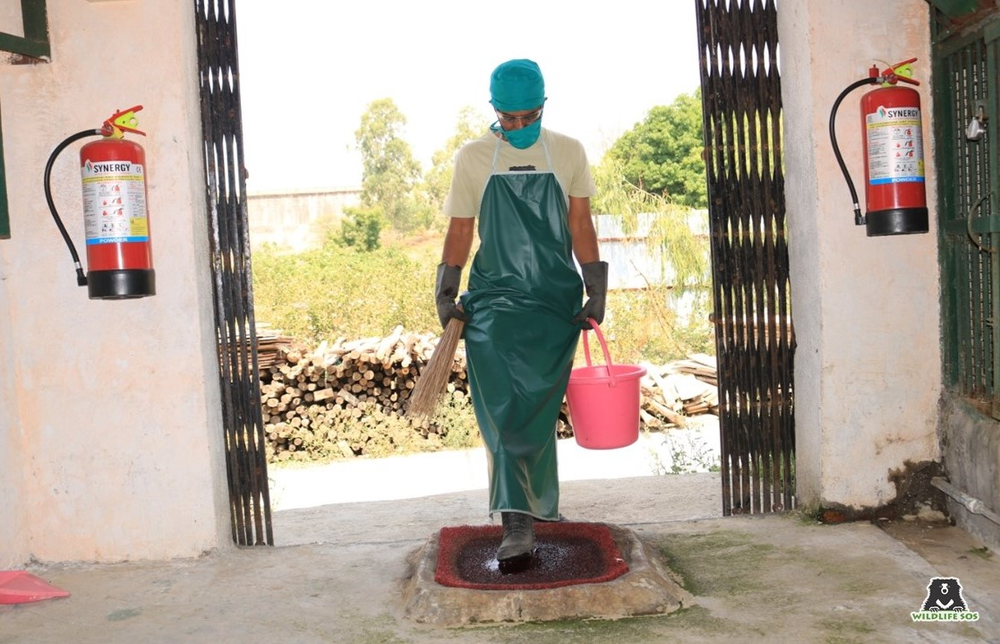
The staff follows social distancing and not more than two keepers are allowed at the same time in the enclosure of the leopards. Direct interface with the leopards has also been minimised.
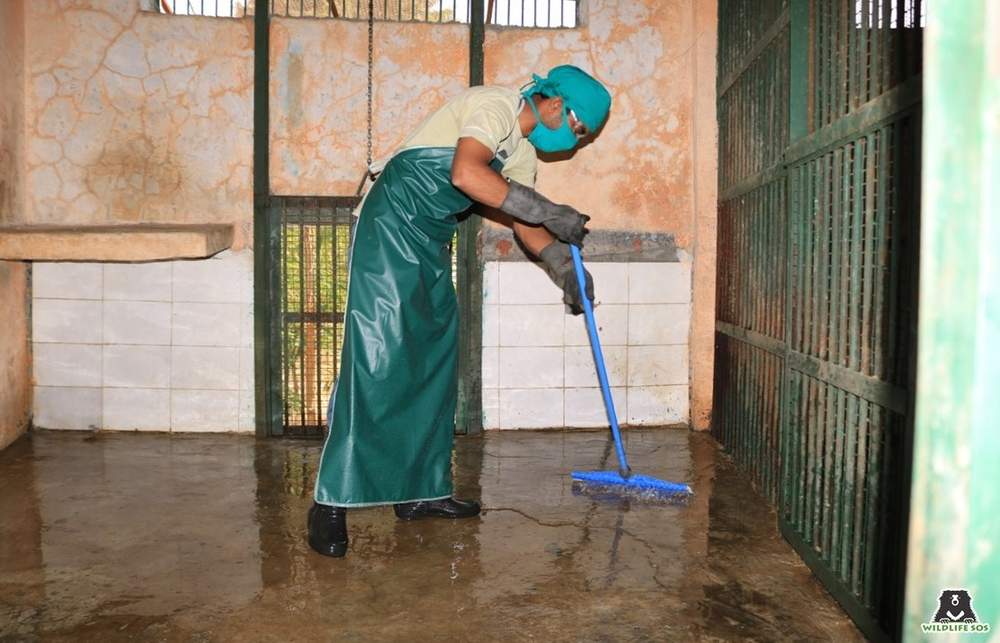
To protect the leopards and decrease the risk of potential spread of the infection, the staff is encouraged to use protective gear such as rubber boots, gloves and face masks at all times.
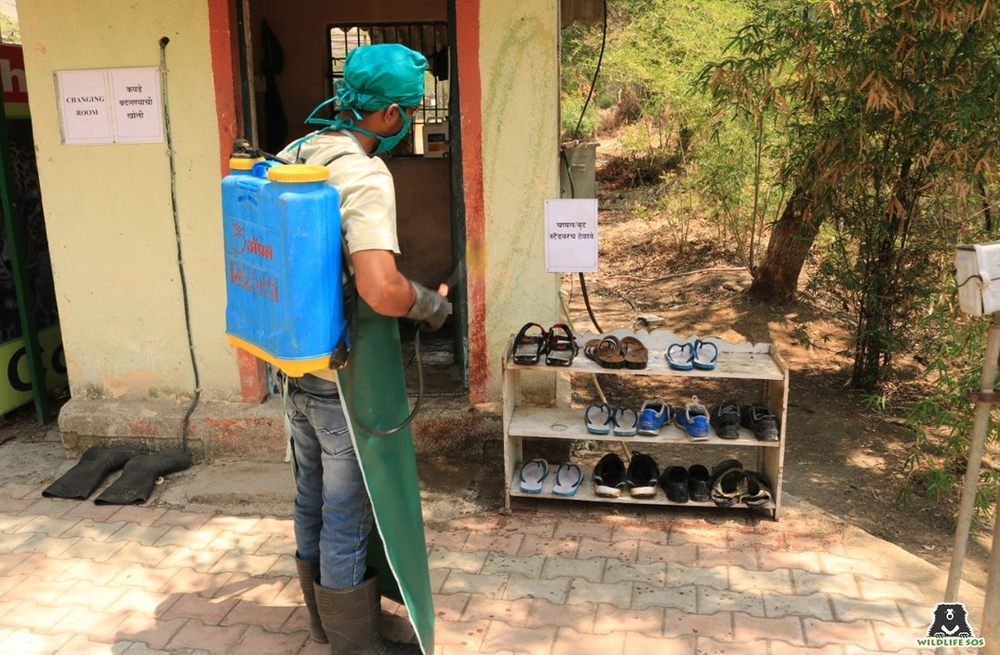
All organic debris is picked up from the enclosures and disinfected properly before disposing into covered wastage pits.

The leopards undergo thermal screening regularly, and they are being closely observed for any signs of abnormal behaviour or symptoms. Leopard keepers have been instructed to maintain Keepers’ Diary to immediately report anything unusual in the leopards’ behaviour.


